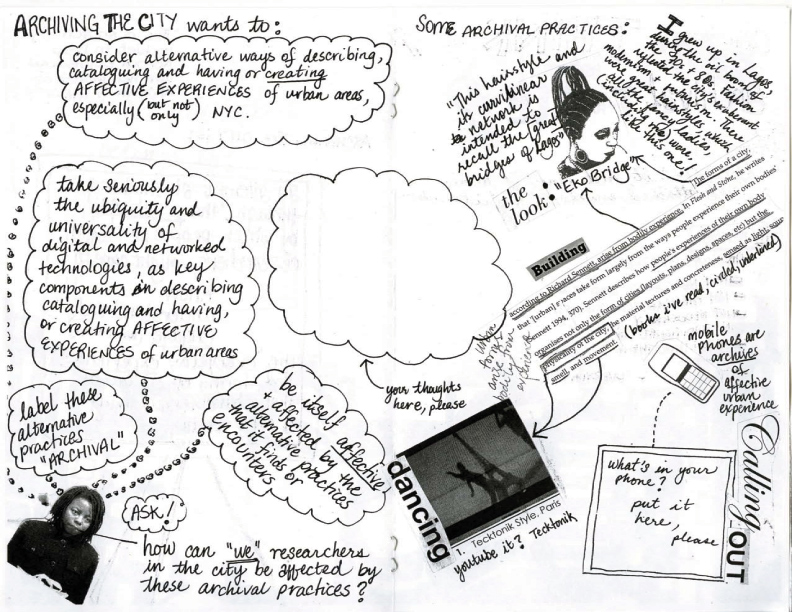Archiving the City
Adeola Enigbokan, Environmental Psychology
I would like to consider some alternative ways of describing, cataloguing, having and creating affective experiences of urban areas, which take into account digital and networked technologies. I have labeled these practices “archival,” in order to extend or disrupt both traditional theoretical notions of urban space, and traditional notions of archives. “The archive” as a modern phenomenon, has been concerned with presence, with constructing presence out of absence. According to Manuel Delandra, a traditional view of the archive is “a depository of cultural materials slowly sedimented through time.” This sort of archive is a final product, in the form of libraries, scholarly collections or bureaucratic records, differentiated by the use that people make of them. Some archives, like ancient texts, are used for finding out about “the past,” while other archives, like hospital records, are kept for use in “the future.” The archive’s transformation from a “monument for future memory” to a “document for possible use” points to new processes of subjectification that have come to form a distinct part of modern life. Michel Foucault’s work focused on how, in the 17th and 18th centuries, the development of particular processes for examining individuals, such as medical examinations and testing of students and military personnel, generated data for new individualized archives. These new archives objectified individuals in their uniqueness and singularity by linking them to “a whole mass of documents that capture and fix them.” This process of subjectification has strong implications for present-day notions of identity. As archives take on digital form, new kinds of writing, and new implications for this writing, begin to take precedence. For example, identity theft through the appropriation of electronic data about individuals illustrates the extent to which the meanings of archives have changed — from a matter of representations and categories to a matter of reputations and identities. What are some other kinds of archives, or uses for archives, that emerge as a result of the digitization of personalized information? What are the “archival practices” to which we are attached in contemporary urban life? How do these practices relate to our affective experience of the city?
